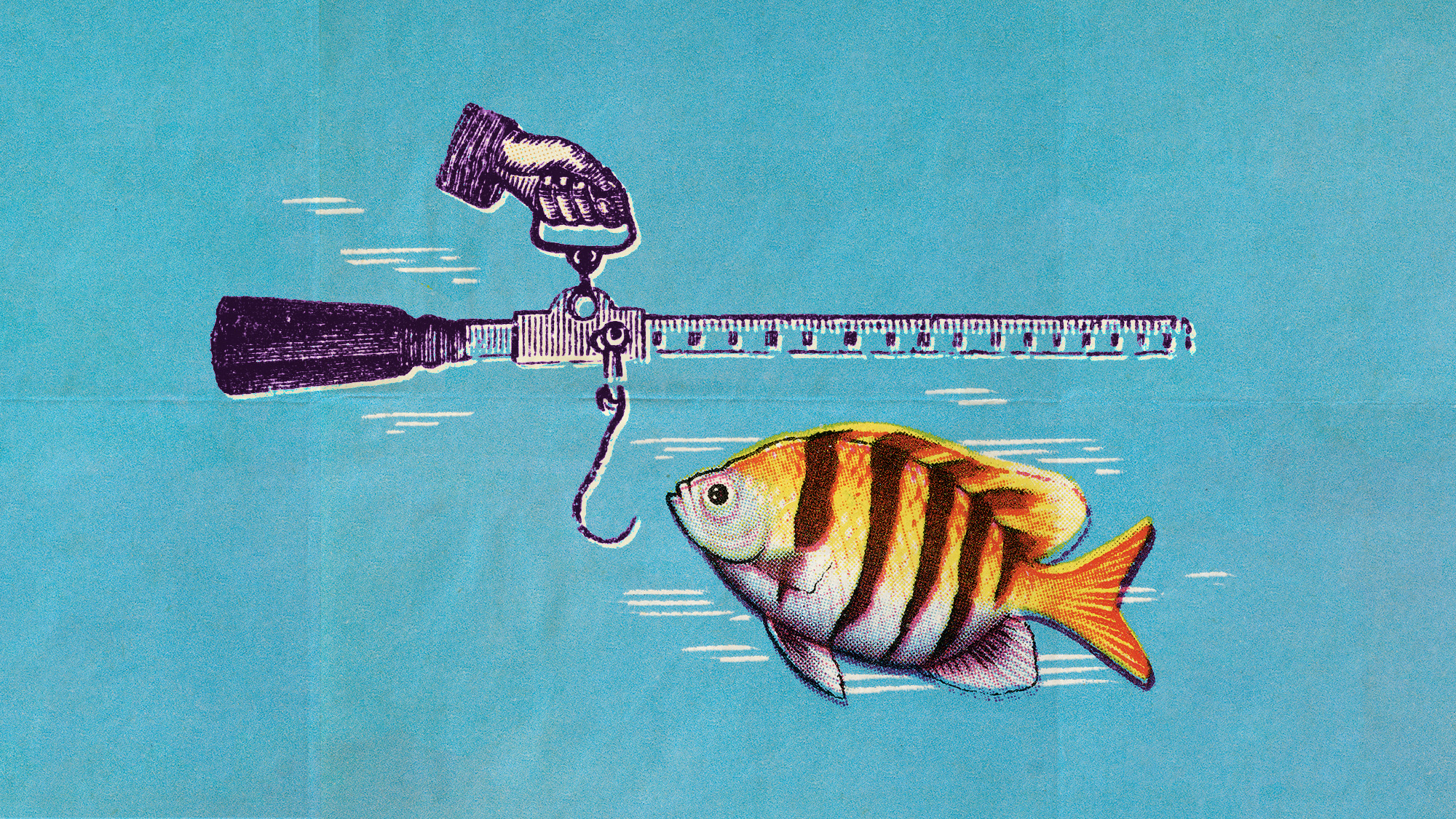Fish around the world are shrinking
Smaller fish in a very, very big pond


A free daily email with the biggest news stories of the day – and the best features from TheWeek.com
You are now subscribed
Your newsletter sign-up was successful
Fish are becoming smaller and we humans are most likely to blame. Climate change and overconsumption have drastically altered fish populations and could lead to food struggles in the future. Other species are also seeing changes due to climate change, which could lead to a shift in the aquatic ecosystem as it is currently known. Nonetheless, many marine ecosystems are actively adapting to the changing ocean and climate conditions, showing more resilience than expected.
A whole lot of small fry
The world's fish supply is getting smaller, physically. A study published in the journal Science said that body size trends "varied across communities," but "marine fish more consistently shifted toward smaller body size." This trend is concerning for scientists as more than 3 billion people worldwide rely on fish as a source of food. "Organisms becoming smaller has important effects, as the size of animals mediates their contribution to how ecosystems function and how humans benefit from them," professor Maria Dornelas, one of the authors of the study, said to The Guardian. "Bigger fish can usually feed more people than smaller fish."
"Smaller fish produce less offspring than larger fish and therefore less productive fish populations," said Firstpost. "Fishermen will catch smaller fish. This will in turn reduce the global fish supply." This could alter the global food supply, as well as economies dependent on fishing. "It's a problem for the fishery," Art Bloom, a salmon fisherman in Alaska's Bristol Bay, said to The Washington Post. Smaller fish "don't present as well in the supermarket."
The Week
Escape your echo chamber. Get the facts behind the news, plus analysis from multiple perspectives.

Sign up for The Week's Free Newsletters
From our morning news briefing to a weekly Good News Newsletter, get the best of The Week delivered directly to your inbox.
From our morning news briefing to a weekly Good News Newsletter, get the best of The Week delivered directly to your inbox.
The changing demographic can also permanently alter the ecosystem. "In marine and other aquatic ecosystems, size determines whether you are a prey or predator," Asta Audzijonyte, who studies fish at the University of Tasmania, said to the Post. And fish are not the only aquatic species seeing changes in size. The research showed that several plants and other invertebrate species are also shrinking, while some other species are actually getting larger. "Unfortunately, we currently lack data on many organisms other than fish to draw clear conclusions — future research will benefit from a greater investment in these kinds of measurements, particularly when exploring food webs and other species interactions," Franziska Schrodt, a co-author of the study, said to The Guardian.
Fishing for answers
While scientists can confirm that fish are becoming smaller, they cannot pinpoint a specific reason. Experts have considered two reasons: overfishing and warming oceans. "One undisputed reason so much marine life is getting smaller is fishing. Recreational anglers and commercial fishers alike like to catch large fish," said the Post. "That quest for the big ones leaves the small fries behind." An abundance of small fish will continue to produce small fish, bringing down the physical size of the population.
Research has also shown that fish tend to be smaller in size in warmer water, a phenomenon called the temperature-size rule. Though the rule has been widely observed, scientists do not know the reason. One theory was that fish gills were unable to keep up with the fish's oxygen demands in warmer water, which holds less oxygen than colder water. However, this theory did not apply across the board, and experts debate its validity. Another theory is that "fish have evolved to stay small to survive hot spells, or that some other body system besides gills is limiting oxygen uptake and growth," said the Post.
While smaller fish are a concern, ecosystems have shown signs of adapting. "The relationship between abundance change and body size change is complex and variable, but there are signs that the overall reduction in body size is being counteracted by increasing overall abundance," the study said.
A free daily email with the biggest news stories of the day – and the best features from TheWeek.com
Devika Rao has worked as a staff writer at The Week since 2022, covering science, the environment, climate and business. She previously worked as a policy associate for a nonprofit organization advocating for environmental action from a business perspective.
